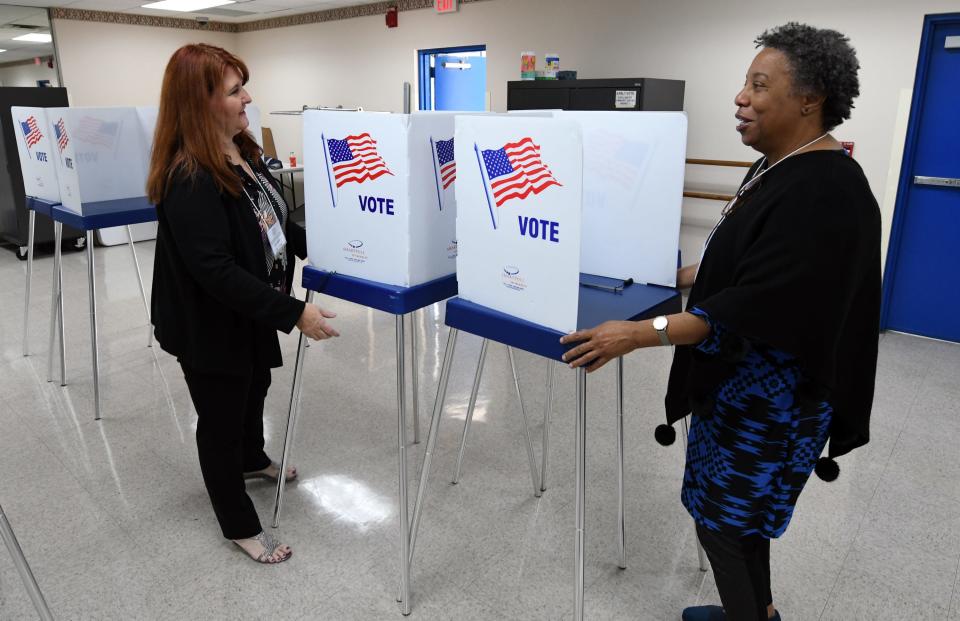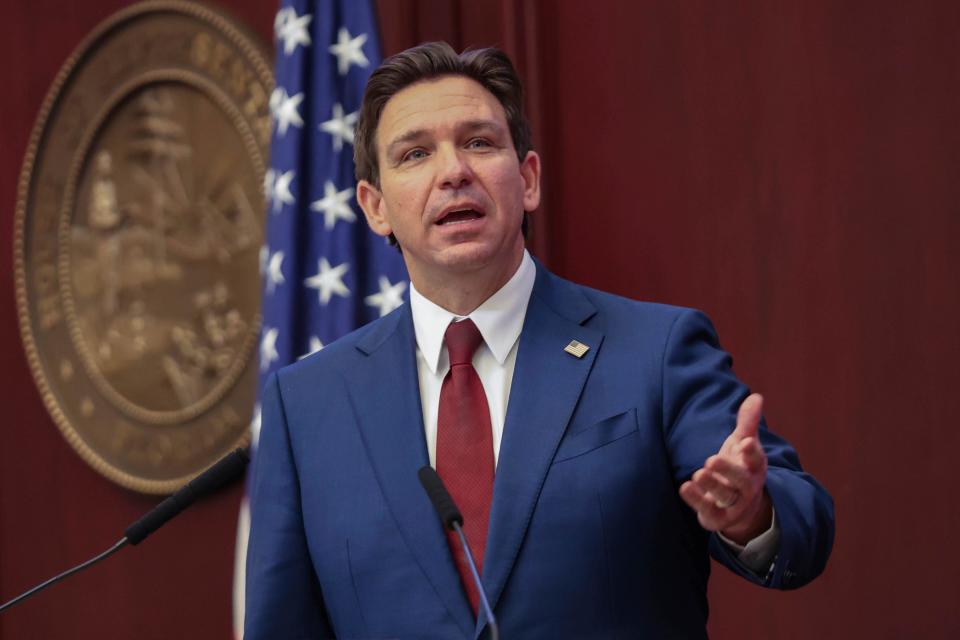Boca Raton Republican files legislation to address 'glitch' changing voter party affiliations to NPA
- Oops!Something went wrong.Please try again later.
A Boca Raton Republican has filed legislation in response to a "glitch" she believed incorrectly changed the political party affiliation of an untold number of voters when they renewed their driver's licenses.
State Rep. Peggy Gossett-Seidman, R-Boca Raton, said she has been working during the past months with Dave Kerner, who heads the Florida Department of Highway and Motor Vehicles, Wendy Link, the Palm Beach County supervisor of elections, and the Florida Department of State to repair the software used by motorists to also update voter registration cards as they renew or replace driver licenses.
"They told me it was happening for seven to eight years," Gossett-Seidman said of the problem in the software. "This is not a partisan thing. This is bipartisan and it affected both big parties."

All told, Gossett-Seidman said the voter registrations of potentially hundreds of thousands of Florida voters were inadvertently changed from their chosen party to no-party affiliation, meaning they would be ineligible to vote in the primary elections to select the representative candidate of their previous party.
The issue is believed to have been fixed. But as a backstop, Gossett-Seidman said she is proposing HB 135. That measure states that any changes to a voter's party affiliation can only be made if the citizen requests it and consents to it in writing.
How were voters' party affiliations changed without their knowing?
Federal highway administration data states that 15.5 million people in Florida have a driver license issued by the state as of 2022. State law says residents must renew their license every eight years. In addition, many Florida drivers replace their licenses every year for multiple reasons, whether because they were lost or because they moved to a new address.
The mishap apparently took place through the Department of Motor Vehicles' website as well as the program used at DMV offices for in-person drives license services. The DMV programs allow drivers updating their data, perhaps because they moved, the option of simultaneously updating their voter registrations.

Gossett-Seidman said that is where the flaw apparently existed. The software allowed voters to make changes to their registration status, but if the user did not re-select their existing party the system incorrectly switched their allegiance to no-party affiliation. In essence, Gossett-Seidman said, the software did not tell users they had to reconfirm their party choice or else be moved to the independent space.
"It was conducting [the change] itself, all by itself, without people's knowledge," Gossett-Seidman said. "People need to have knowledge what they're signing up for."
Despite assertions the repair has been installed, Gossett-Seidman said her legislation would impose stricter requirements on notifying a person of any voter registration changes.
Vote-by-mail changes in 2021: Four things voters should know about Florida's new election law
For example, someone making an update in their voter registration through the DMV must be given a receipt detailing the changes in party affiliation. It also states that DMV employees cannot change party affiliations, and that the applicant must submit an electronic signature consenting to a change.
Kerner, a former Palm Beach County commissioner, declined to comment and attempts to reach Link were not successful.
The drop in NPA voters, and all Florida voters
It is not clear how many voter party affiliations were unwittingly changed due to the purported DMV problem Gossett-Seidman still seeks to address.
But, in the past decade, NPA registrations have gradually been increasing. At the end of 2013, the state listed about 2.9 million voters registered with minor or no parties. That number peaked in 2022 with 4 million, before dropping to 3.6 million as of Nov. 30, 2023.
There are other reasons to explain the increase, from population growth to what political observers and pollsters have said is voters' unhappiness with both major parties.
Those factors, however, would not explain the seemingly anomaly year of 2016, in which the number of NPA voter registrations grew by 247,000. Subsequently, the number of NPA voters grew by 100,000 per year from 2017 to 2022, outpacing Republican and Democratic voters during that time.
Then, last year, the ranks of NPAs plummeted by 425,000.
There is also a potential explanation for the 2023 drop.
A law enacted last year toughened guidelines for elections supervisors by requiring them to send notices to people who did not vote in recent elections and ultimately leading to the reclassification of many voters as "inactive."
Yet the drop also coincides with the timeline Gossett-Seidman discussed, saying that this glitch was found in the spring of 2023 and and a repair was achieved months later.
"Allegedly, it's fixed but we're looking at other forms of the software to make sure there's no other glitches," Gossett-Seidman said.
Stephany Matat is a politics reporter for The Palm Beach Post, part of the USA TODAY-Florida network. Reach her at smatat@pbpost.com. Support local journalism: Subscribe today.
This article originally appeared on Palm Beach Post: Florida lawmaker aims to address glitch changing voters to NPA status

